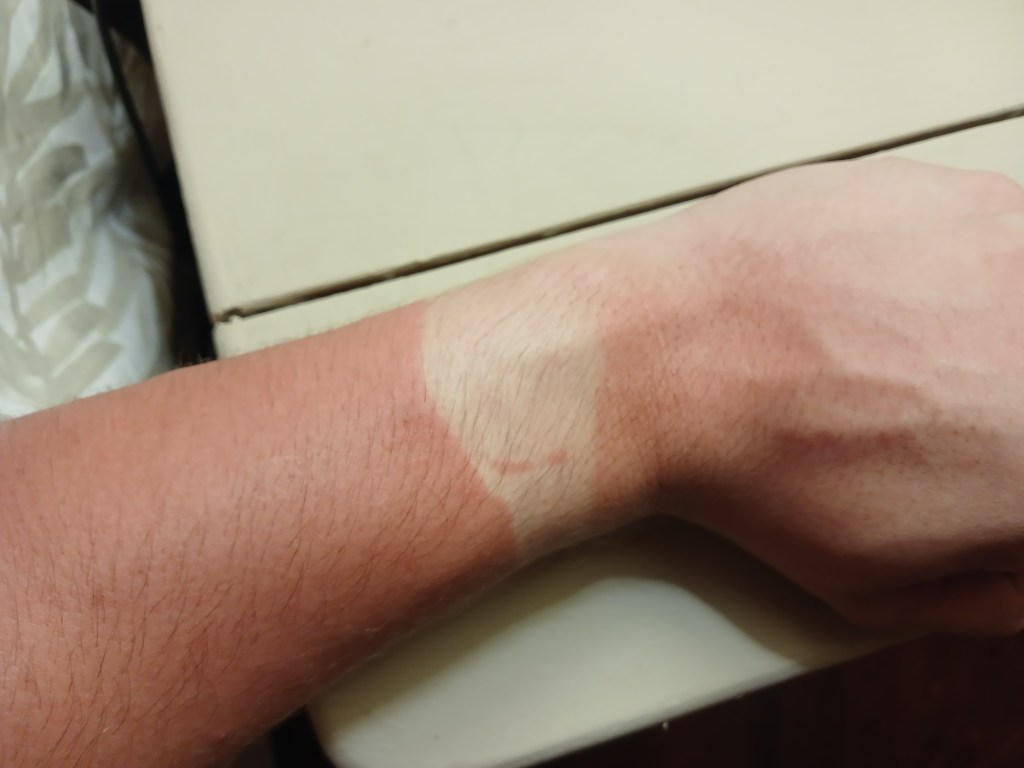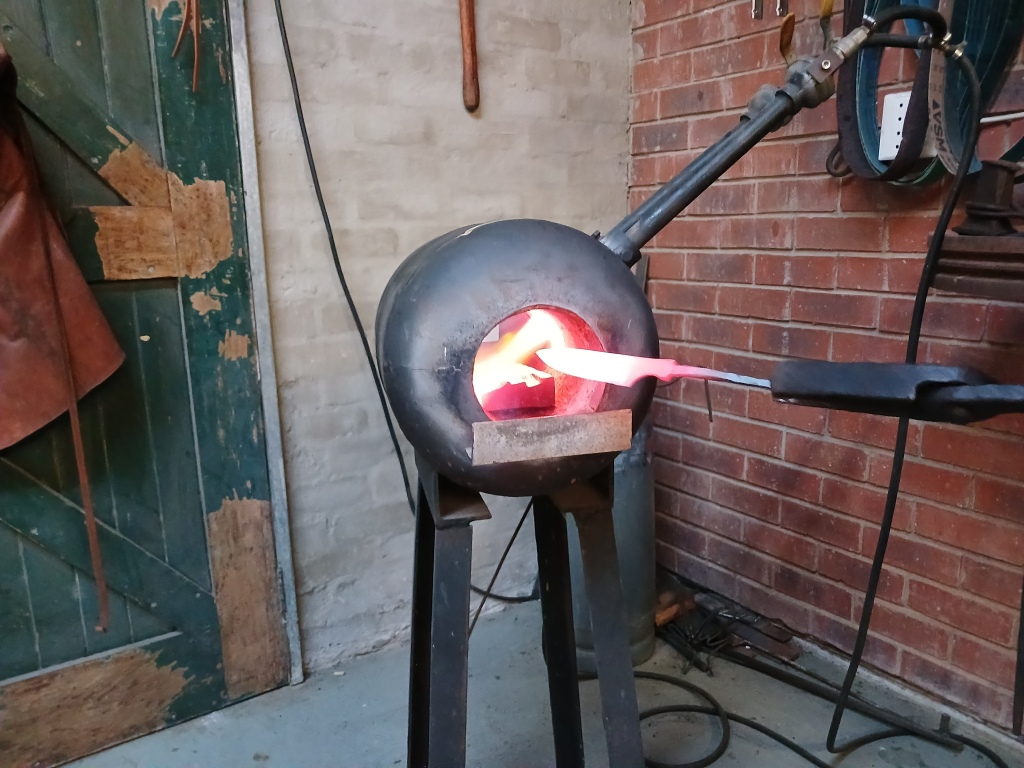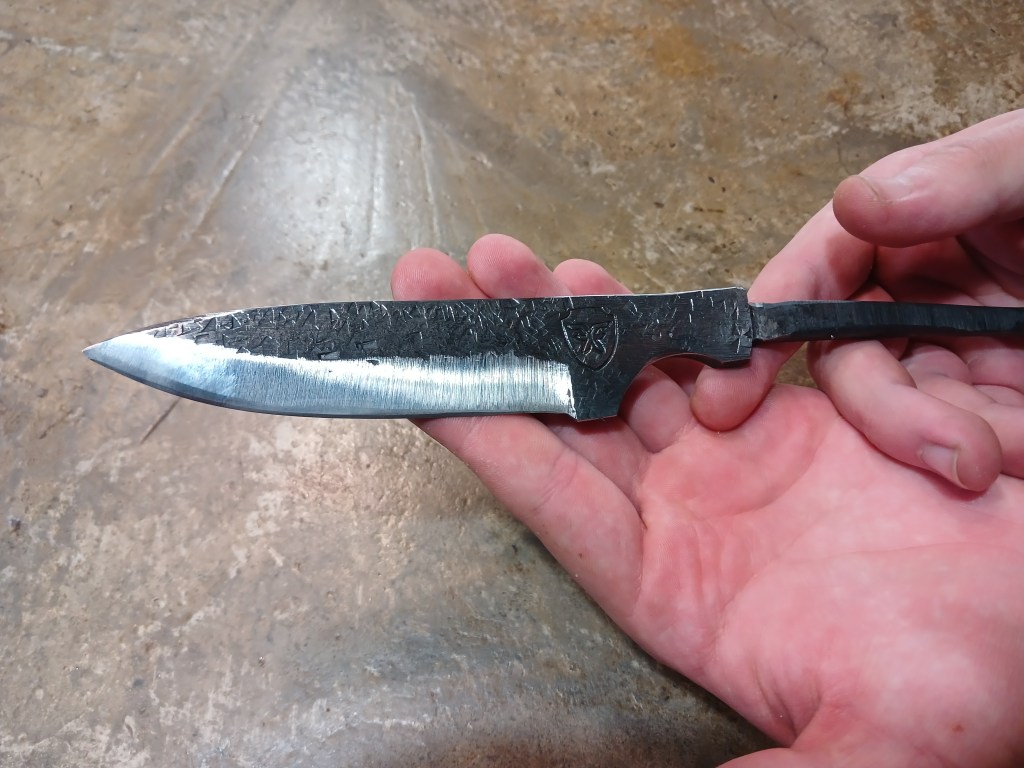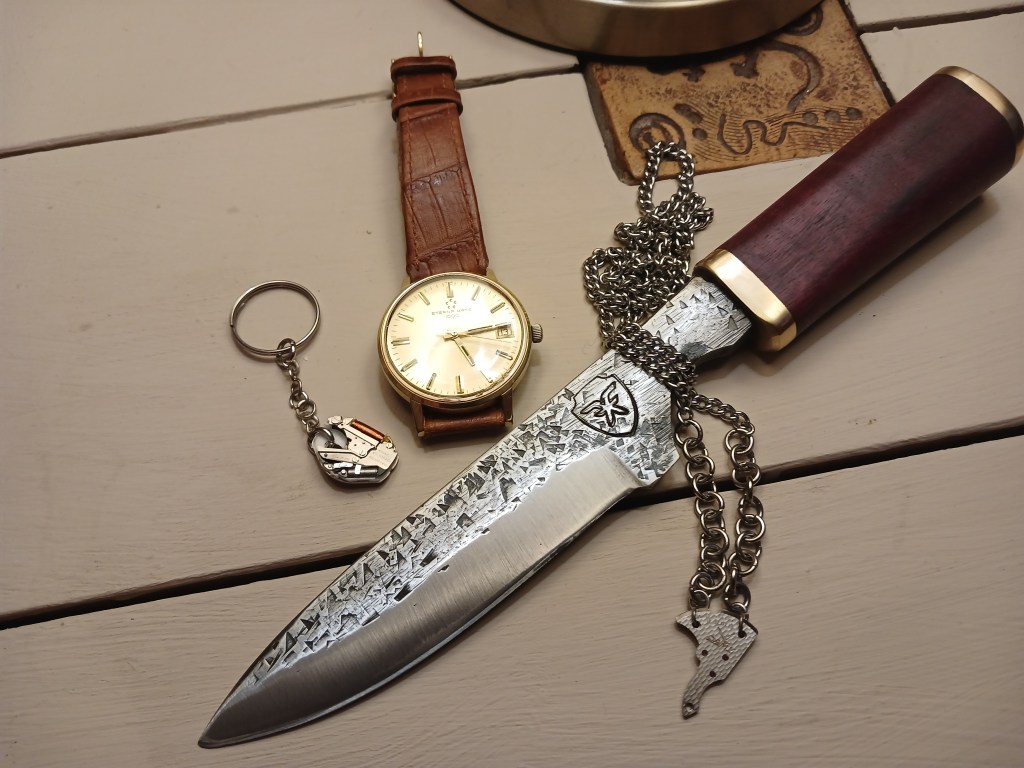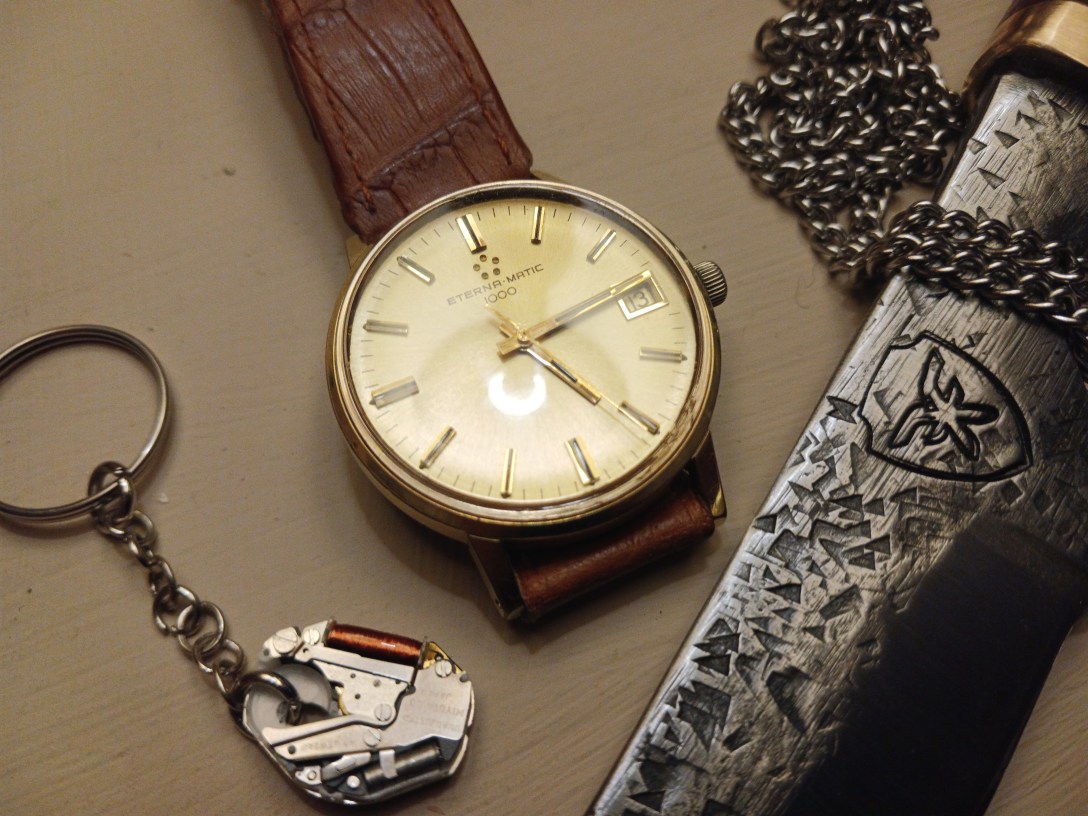My uncle owns a civil engineering firm. He’s an awesome guy and my dad visits him regularly. I don’t visit him regularly, which is a bit of a problem.
He is one of those men that in a perfect world every young man should have access to. He is full of jest and doesn’t take things too seriously, which is a clever disguise for a man as wise as him. One moment he’s walking up to a restaurant kitchen and taking someone’s croissant so that he won’t have to wait for his (also to shock some staff and bring a smile to their faces) and the next moment he’s sharing a wise saying, like “attitude is the aroma of your heart.”
I had the pleasure of visiting him recently. The whole idea was that he would drop me off at a leatherworker he knew of so I could make a few watch straps. The leather guy was busy, so I would have to spend the time with him. I spent a little over two days in his company and I learnt more in those two days than I have in a few months anywhere else. They’re all small, rather trivial things, but things that mean a lot to a teenager/young man searching for his identity and place in the world.
South Africa for young men is, for the most part, defined by traditional masculine ideals. Some westerners believe that we’re all bushmen who ride elephants to school. Some believe that we’re just like the rest of the developed world. The truth lies between these two perspectives. South Africa, for better or worse, is oftentimes described as being more “south” than “Africa.” To fully unpack this, we’ll need to call upon the historian and sociologist part of me. I tried to contact him, but he’s on leave, so, in other words, I’m keeping it more or less about watches. Many cultures practice initiation ceremonies for their young men. I’ll simply not bother beating about the bush on this and say that (most) white Africans don’t do this. Initiations were mostly dropped in Europe before my ancestors put their things on a boat and left wherever they lived for a new home here. These initiation ceremonies vary, but the general formula is that teenagers/young men are taken to the bush, circumcised, and left as a group to fend for themselves and survive. The idea behind this is that you learn to lead, follow and make use of natural resources around you, i.e. everything needed to survive. Things are different these days. Few people need to forage and hunt for their food, so these ceremonies aren’t really practiced much in suburban settings.
Why is this important? On the first day, we visited a site where my uncle is contracted to build a solar farm. I’m not sure exactly what he is doing, as there are multiple contractors, but he is there, with excavators and labourers. This solar farm is going to supply one of the few remaining mines in the area with uninterrupted electricity. Once we were finished meeting with some foremen, we drove to another part of the mine. This was part of a story he was telling me, about how the mines used to get three grams of gold per ton of material, but recently discovered an improved process to extract a further three grams per ton. As a result, many mine dumps are being reclaimed and reprocessed. We stopped just behind one of these hulking piles of white sand to chat with some general labourers. My uncle knew them all by name.
This struck me. All my life I have never seen any mine captain or authority figure treat workers with such respect. Take care of your employees and they will take care of you. We chatted away with them, sharing jokes and all. We leaned against the bed of the Toyota Hilux work bakkie parked nearby, when he spotted a 50cc power grinder. Without hesitation, he asked one of the guys to start it up. I was going to use this machine to cut concrete lintels. I thought (and hoped) that he was joking; I have very little power tool experience. I would be nervous to use a standard angle grinder, so this giant piece of kit was intimidating to say the least. Feeling the eyes of everyone there rest on me, I had no choice but to pick the grinder up and cut a piece off of the broken lintel. “All the way with the revs,” he told me. I cut a piece. “Cut another piece,” he said. I cut another piece.
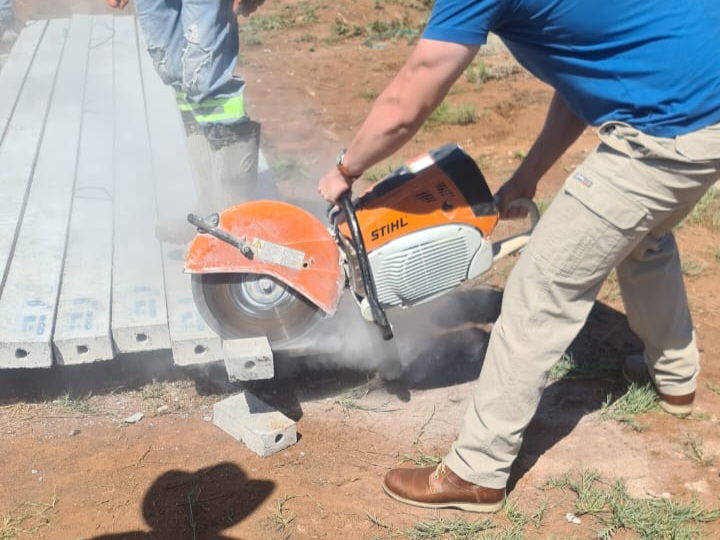
I first assumed this to be another one of his stunts or an offshoot of his relaxed and fun-loving personality, but he revealed the purpose to me during our drive back. The crux of it is that there is no initiation for someone like me, an English-speaking Afrikaner. Sidenote: my genetic makeup (like all of ours) is so varied that I can’t really find a term to describe everything; “English-speaking Afrikaner” is as close as it’s going to get. There is no baseline test to tell the rest of my group that I am a man. Those men working on the mine all passed their test. They all went into the bush as boys. They all came out as men. That power grinder is an intimidating machine the first time you pick it up, there’s no question about it, so to pick it up and use it is the hallmark of a value that every man needs: fearlessness.
He explained that by using the grinder I was proving myself to those men, who were complete strangers to me. I don’t need their respect or validation. So what if they think I’m a coward? I’ll probably never see them again, but I did it anyway. I realised that while the respect of those men is actually worth a lot, that’s not the biggest prize I earned. I earned my own respect. I have never been the most confident man and my brain is hard-wired to focus on what I do wrong instead of what I get right, so to have a “victory” meant slowly opening up to saying “I can.”
After a few more tasks, we drove to his house where we would make a knife. His hobby is knife making, which has an incredible number of parallels and similarities to watchmaking. A virtue like patience is needed in exorbitant amounts for both. What I loved so much about his workshop was his attitude to failure. Just above his workbench, he has some of his failed knives mounted on the wall, with words of motivation written on in Tipp-Ex. I wish I had a photo to show. I’m going to do the same for watchmaking from now on. I’ll find a way to frame some broken parts and write what I did wrong and choose to learn from it instead of dwell on it.
This is the result of his effort. I didn’t do much, given my limited knowledge, but I did learn. This knife was an old drill bit. After some hammering, forging, tempering and the addition of wood and brass, we had a knife. This is one thing that I feel is missing from watchmaking where I stand. I take things apart and put them together again. I’m missing that feeling of creating something from nothing. I’m fixing up the work of other people. I don’t turn brass into wheels and I don’t turn steel into cases. I turn a broken watch into a fixed watch, but I haven’t necessarily created a new watch. I have merely added, subtracted and carefully tended to a machine that was once working. I can always create my own movement, but that takes engineering skill and money that I don’t possess. Maybe one day I can be like Roland G. Murphy.
The day I visited his company was closing for the holidays, so I got to meet his employees. It’s a small company, so there aren’t many people to meet. We all sat under a tree on one of the sites managed by his sister company (a sister company actually managed by his sister, so that’s a cool double entendre.) Every single person was polite and welcoming. By the end of the night I was on a first name basis with just about everyone, which took some getting used to, as one of the social customs instilled in me is calling those ten or more years older than you “uncle” or “aunty.” Do other people do this or is it something unique to my culture? To cut a long story short, I’m going to work there for a few days in the school holidays.
I’m glad to have someone like this uncle to help give me direction in life. I am already very privileged to have an amazing father, so having an uncle like him is the icing on the cake.
